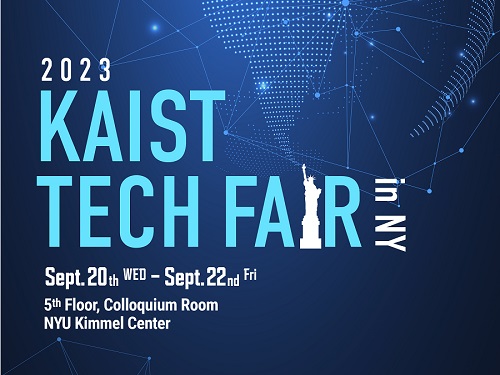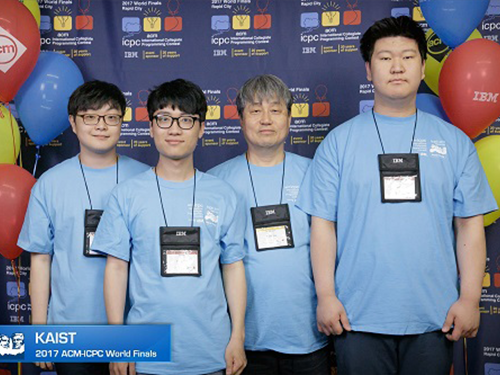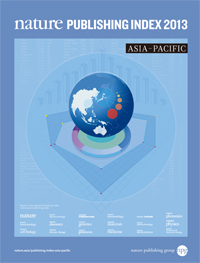NPI
-
 KAIST holds its first ‘KAIST Tech Fair’ in New York, USA
< Photo 1. 2023 KAIST Tech Fair in New York >
KAIST (President Kwang-Hyung Lee) announced on the 11th that it will hold the ‘2023 KAIST Tech Fair in New York’ at the Kimmel Center at New York University in Manhattan, USA, on the 22nd of this month. It is an event designed to be the starting point for KAIST to expand its startup ecosystem into the global stage, and it is to attract investments and secure global customers in New York by demonstrating the technological value of KAIST startup companies directly at location.
< Photo 2. President Kwang Hyung Lee at the 2023 KAIST Tech Fair in New York >
KAIST has been holding briefing sessions for technology transfer in Korea every year since 2018, and this year is the first time to hold a tech fair overseas for global companies.
KAIST Institute of Technology Value Creation (Director Sung-Yool Choi) has prepared for this event over the past six months with the Korea International Trade Association (hereinafter KITA, CEO Christopher Koo) to survey customer base and investment companies to conduct market analysis.
Among the companies founded with the technologies developed by the faculty and students of KAIST and their partners, 7 companies were selected to be matched with companies overseas that expressed interests in these technologies. Global multinational companies in the fields of IT, artificial intelligence, environment, logistics, distribution, and retail are participating as demand agencies and are testing the marketability of the start-up's technology as of September.
Daim Research, founded by Professor Young Jae Jang of the Department of Industrial and Systems Engineering, is a company specializing in smart factory automation solutions and is knocking on the door of the global market with a platform technology optimized for automated logistics systems.
< Photo 3. Presentation by Professor Young Jae Jang for DAIM Research >
It is a ‘collaborative intelligence’ solution that maximizes work productivity by having a number of robots used in industrial settings collaborate with one another. The strength of their solution is that logistics robots equipped with AI reinforced learning technology can respond to processes and environmental changes on their own, minimizing maintenance costs and the system can achieve excellent performance even with a small amount of data when it is combined with the digital twin technology the company has developed on its own.
A student startup, ‘Aniai’, is entering the US market, the home of hamburgers, with hamburger patty automation equipments and solutions. This is a robot kitchen startup founded by its CEO Gunpil Hwang, a graduate of KAIST’s School of Electrical Engineering which gathered together the experts in the fields of robot control, design, and artificial intelligence and cognitive technology to develop technology to automatically cook hamburger patties.
At the touch of a button, both sides of the patty are cooked simultaneously for consistent taste and quality according to the set condition. Since it can cook about 200 dishes in an hour, it is attracting attention as a technology that can not only solve manpower shortages but also accelerate the digital transformation of the restaurant industry.
Also, at the tech fair to be held at the Kimmel Center of New York University on the 22nd, the following startups who are currently under market verification in the U.S. will be participating: ▴'TheWaveTalk', which developed a water quality management system that can measure external substances and metal ions by transferring original technology from KAIST; ▴‘VIRNECT’, which helps workers improve their skills by remotely managing industrial sites using XR*; ▴‘Datumo’, a solution that helps process and analyze artificial intelligence big data, ▴‘VESSL AI’, the provider of a solution to eliminate the overhead** of machine learning systems; and ▴ ‘DolbomDream’, which developed an inflatable vest that helps the psychological stability of people with developmental disabilities.
* XR (eXtended Reality): Ultra-realistic technology that enhances immersion by utilizing augmented reality, virtual reality, and mixed reality technologies
** Overhead: Additional time required for stable processing of the program
In addition, two companies (Plasmapp and NotaAI) that are participating in the D-Unicorn program with the support of the Daejeon City and two companies (Enget and ILIAS Biologics) that are receiving support from the Scale Up Tips of the Ministry of SMEs and Startups, three companies (WiPowerOne, IDK Lab, and Artificial Photosynthesis Lab) that are continuing to realize the sustainable development goals for a total of 14 KAIST startups, will hold a corporate information session with about 100 invited guests from global companies and venture capital.
< Photo 4. Presentation for AP Lab >
Prior to this event, participating startups will be visiting the New York Economic Development Corporation and large law firms to receive advice on U.S. government support programs and on their attemps to enter the U.S. market. In addition, the participating companies plan to visit a startup support investment institution pursuing sustainable development goals and the Leslie eLab, New York University's one-stop startup support space, to lay the foundation for KAIST's leap forward in global technology commercialization.
< Photo 5. Sung-Yool Choi, the Director of KAIST Institute of Technology Value Creation (left) at the 2023 KAIST Tech Fair in New York with the key participants >
Sung-Yool Choi, the Director of KAIST Institute of Technology Value Creation, said, “KAIST prepared this event to realize its vision of being a leading university in creating global value.” He added, “We hope that our startups founded with KAIST technology would successfully completed market verification to be successful in securing global demands and in attracting investments for their endeavors.”
2023.09.11 View 18632
KAIST holds its first ‘KAIST Tech Fair’ in New York, USA
< Photo 1. 2023 KAIST Tech Fair in New York >
KAIST (President Kwang-Hyung Lee) announced on the 11th that it will hold the ‘2023 KAIST Tech Fair in New York’ at the Kimmel Center at New York University in Manhattan, USA, on the 22nd of this month. It is an event designed to be the starting point for KAIST to expand its startup ecosystem into the global stage, and it is to attract investments and secure global customers in New York by demonstrating the technological value of KAIST startup companies directly at location.
< Photo 2. President Kwang Hyung Lee at the 2023 KAIST Tech Fair in New York >
KAIST has been holding briefing sessions for technology transfer in Korea every year since 2018, and this year is the first time to hold a tech fair overseas for global companies.
KAIST Institute of Technology Value Creation (Director Sung-Yool Choi) has prepared for this event over the past six months with the Korea International Trade Association (hereinafter KITA, CEO Christopher Koo) to survey customer base and investment companies to conduct market analysis.
Among the companies founded with the technologies developed by the faculty and students of KAIST and their partners, 7 companies were selected to be matched with companies overseas that expressed interests in these technologies. Global multinational companies in the fields of IT, artificial intelligence, environment, logistics, distribution, and retail are participating as demand agencies and are testing the marketability of the start-up's technology as of September.
Daim Research, founded by Professor Young Jae Jang of the Department of Industrial and Systems Engineering, is a company specializing in smart factory automation solutions and is knocking on the door of the global market with a platform technology optimized for automated logistics systems.
< Photo 3. Presentation by Professor Young Jae Jang for DAIM Research >
It is a ‘collaborative intelligence’ solution that maximizes work productivity by having a number of robots used in industrial settings collaborate with one another. The strength of their solution is that logistics robots equipped with AI reinforced learning technology can respond to processes and environmental changes on their own, minimizing maintenance costs and the system can achieve excellent performance even with a small amount of data when it is combined with the digital twin technology the company has developed on its own.
A student startup, ‘Aniai’, is entering the US market, the home of hamburgers, with hamburger patty automation equipments and solutions. This is a robot kitchen startup founded by its CEO Gunpil Hwang, a graduate of KAIST’s School of Electrical Engineering which gathered together the experts in the fields of robot control, design, and artificial intelligence and cognitive technology to develop technology to automatically cook hamburger patties.
At the touch of a button, both sides of the patty are cooked simultaneously for consistent taste and quality according to the set condition. Since it can cook about 200 dishes in an hour, it is attracting attention as a technology that can not only solve manpower shortages but also accelerate the digital transformation of the restaurant industry.
Also, at the tech fair to be held at the Kimmel Center of New York University on the 22nd, the following startups who are currently under market verification in the U.S. will be participating: ▴'TheWaveTalk', which developed a water quality management system that can measure external substances and metal ions by transferring original technology from KAIST; ▴‘VIRNECT’, which helps workers improve their skills by remotely managing industrial sites using XR*; ▴‘Datumo’, a solution that helps process and analyze artificial intelligence big data, ▴‘VESSL AI’, the provider of a solution to eliminate the overhead** of machine learning systems; and ▴ ‘DolbomDream’, which developed an inflatable vest that helps the psychological stability of people with developmental disabilities.
* XR (eXtended Reality): Ultra-realistic technology that enhances immersion by utilizing augmented reality, virtual reality, and mixed reality technologies
** Overhead: Additional time required for stable processing of the program
In addition, two companies (Plasmapp and NotaAI) that are participating in the D-Unicorn program with the support of the Daejeon City and two companies (Enget and ILIAS Biologics) that are receiving support from the Scale Up Tips of the Ministry of SMEs and Startups, three companies (WiPowerOne, IDK Lab, and Artificial Photosynthesis Lab) that are continuing to realize the sustainable development goals for a total of 14 KAIST startups, will hold a corporate information session with about 100 invited guests from global companies and venture capital.
< Photo 4. Presentation for AP Lab >
Prior to this event, participating startups will be visiting the New York Economic Development Corporation and large law firms to receive advice on U.S. government support programs and on their attemps to enter the U.S. market. In addition, the participating companies plan to visit a startup support investment institution pursuing sustainable development goals and the Leslie eLab, New York University's one-stop startup support space, to lay the foundation for KAIST's leap forward in global technology commercialization.
< Photo 5. Sung-Yool Choi, the Director of KAIST Institute of Technology Value Creation (left) at the 2023 KAIST Tech Fair in New York with the key participants >
Sung-Yool Choi, the Director of KAIST Institute of Technology Value Creation, said, “KAIST prepared this event to realize its vision of being a leading university in creating global value.” He added, “We hope that our startups founded with KAIST technology would successfully completed market verification to be successful in securing global demands and in attracting investments for their endeavors.”
2023.09.11 View 18632 -
 KAIST Team Wins Bronze Medal at Int'l Programming Contest
A KAIST Team consisting of undergraduate students from the School of Computing and Department of Mathematical Science received a bronze medal and First Problem Solver award at an international undergraduate programming competition, The Association for Computing Machinery-International Collegiate Programming Contest (ACM-ICPC) World Finals.
The 41st ACM-ICPC hosted by ACM and funded by IBM was held in South Dakota in the US on May 25. The competition, first held in 1977, is aimed at undergraduate students from around the world. A total of 50,000 students from 2900 universities and 103 countries participated in the regional competition and 400 students competed in the finals.
The competition required teams of three to solve 12 problems. The KAIST team was coached by Emeritus Professor Sung-Yong Shin and Professor Taisook Han. The student contestants were Jihoon Ko and Hanpil Kang from the School of Computing and Jongwoon Lee from the Department of Mathematical Science. The team finished ranked 9th, receiving a bronze medal and a $3000 prize. Additionally, the team was the first to solve all the problems and received the First Problem Solver award. Detailed score information can be found on. https://icpc.baylor.edu/scoreboard/
(Photo caption: Professor Taisook Han and his students)
2017.06.12 View 11423
KAIST Team Wins Bronze Medal at Int'l Programming Contest
A KAIST Team consisting of undergraduate students from the School of Computing and Department of Mathematical Science received a bronze medal and First Problem Solver award at an international undergraduate programming competition, The Association for Computing Machinery-International Collegiate Programming Contest (ACM-ICPC) World Finals.
The 41st ACM-ICPC hosted by ACM and funded by IBM was held in South Dakota in the US on May 25. The competition, first held in 1977, is aimed at undergraduate students from around the world. A total of 50,000 students from 2900 universities and 103 countries participated in the regional competition and 400 students competed in the finals.
The competition required teams of three to solve 12 problems. The KAIST team was coached by Emeritus Professor Sung-Yong Shin and Professor Taisook Han. The student contestants were Jihoon Ko and Hanpil Kang from the School of Computing and Jongwoon Lee from the Department of Mathematical Science. The team finished ranked 9th, receiving a bronze medal and a $3000 prize. Additionally, the team was the first to solve all the problems and received the First Problem Solver award. Detailed score information can be found on. https://icpc.baylor.edu/scoreboard/
(Photo caption: Professor Taisook Han and his students)
2017.06.12 View 11423 -
 KAIST Top in the Nature Publishing Index 2013 Asia-Pacific
The Nature Publishing Index 2013 Asia-Pacific has been released today. The index is a supplement to Nature, which measures the output of research articles from nations and institutes published in the 18 Nature-branded primary research journals over the calendar year.
A press release from the Nature Publishing Group follows below:
South Korea regains scientific impetus
PRESS RELEASE FROM NATURE PUBLISHING GROUP
Embargoed until 03.00 KST on Thursday 27 March 2014
South Korea ranks fourth for scientific research output in the region, according to the Nature Publishing Index 2013 Asia-Pacific released today.
In 2013, the nation significantly increased its NPI output following a slight drop in 2012.
Named a possible ‘one to watch’ by the supplement editors, with high levels of investment in science and technology announced by both government and private enterprise, its NPI output is growing faster than China’s.
The Korea Advanced Institute of Science and Technology has risen two places to take top spot above Seoul National University, which has retained second place. Pohang University of Science and Technology has leapt from eighth to third, with a more-than-threefold increase in corrected count, adjusted for the proportional contribution of collaborative institutions.
Last year’s number one, Yonsei University, could not maintain its exceptional 2012 NPI output and has dropped to seventh spot.
It is now just above a newcomer, the Institute for Basic Science (IBS), funded as part of the government’s increased investment in basic science. IBS plans to open 50 research centres by 2017 and will no doubt provide increasing contributions in the next few years.
To see the latest results for the region, and the Nature Publishing Index Global Top 100, visit the Index website at
www.natureasia.com/en/publishing-index.
The data posted on the website is updated every week with a moving window of 12 months of data.
2014.03.27 View 7948
KAIST Top in the Nature Publishing Index 2013 Asia-Pacific
The Nature Publishing Index 2013 Asia-Pacific has been released today. The index is a supplement to Nature, which measures the output of research articles from nations and institutes published in the 18 Nature-branded primary research journals over the calendar year.
A press release from the Nature Publishing Group follows below:
South Korea regains scientific impetus
PRESS RELEASE FROM NATURE PUBLISHING GROUP
Embargoed until 03.00 KST on Thursday 27 March 2014
South Korea ranks fourth for scientific research output in the region, according to the Nature Publishing Index 2013 Asia-Pacific released today.
In 2013, the nation significantly increased its NPI output following a slight drop in 2012.
Named a possible ‘one to watch’ by the supplement editors, with high levels of investment in science and technology announced by both government and private enterprise, its NPI output is growing faster than China’s.
The Korea Advanced Institute of Science and Technology has risen two places to take top spot above Seoul National University, which has retained second place. Pohang University of Science and Technology has leapt from eighth to third, with a more-than-threefold increase in corrected count, adjusted for the proportional contribution of collaborative institutions.
Last year’s number one, Yonsei University, could not maintain its exceptional 2012 NPI output and has dropped to seventh spot.
It is now just above a newcomer, the Institute for Basic Science (IBS), funded as part of the government’s increased investment in basic science. IBS plans to open 50 research centres by 2017 and will no doubt provide increasing contributions in the next few years.
To see the latest results for the region, and the Nature Publishing Index Global Top 100, visit the Index website at
www.natureasia.com/en/publishing-index.
The data posted on the website is updated every week with a moving window of 12 months of data.
2014.03.27 View 7948